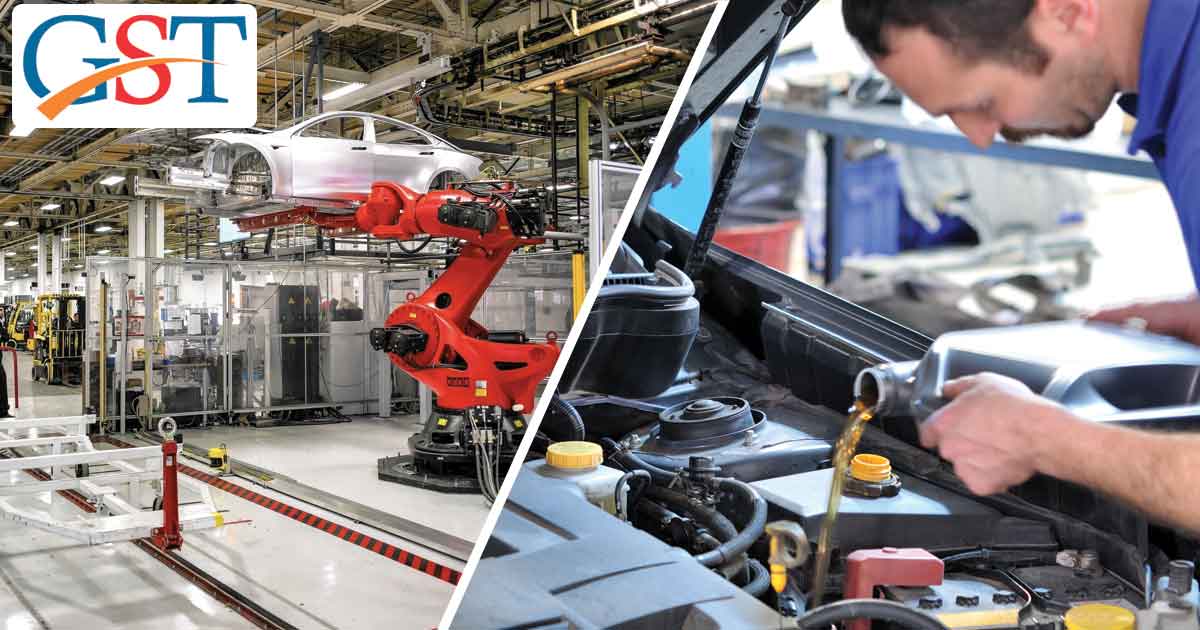Goods and services tax has given a growth in both automobile sales as well as oil demand in India due to its taxation structure. The rise in oil demand is attached to the increased sales in passenger cars and utility vehicles after the announcement of GST and its relevant tax rates on automobiles. It is now known that the GST may have helped the automobile sales to rise but on the other side, the demonetisation move taken by the same government decreased the petrol demand by 3 percent for the January March quarter which is considered to be the most sluggish in the past decade. However, it is speculated that the growth will soon recover in the coming first quarter of 2018 at about 9 percent.
Even if the Crude oil, natural gas, diesel and petrol are out of the GST ambit, it is the impact of GST on automobile and car prices that the petrol and diesel were able to continue their demand as normal. According to the Wood Mackenzie’s Asia refining research analyst Aman Verma, there is a report stating that the demand for petrol is speculated to reach at 670,000 barrels per day (bpd) in 2018 which is around 7 percent higher than the levels of 2017. Also, the diesel, which is known to be highest in demand for consumption is statically to be growing at about 60,000bpd which is 50 percent more than the 2017 levels.
He said that “The GST will boost gasoline demand in the short to medium term, as more conventional passenger cars and utility vehicles are sold – much to the detriment of hybrids, The GST will boost gasoline demand in the short to medium term, as more conventional passenger cars and utility vehicles are sold – much to the detriment of hybrids, As the aftermath of demonetisation diminishes, businesses adapt to the GST and diesel car sales sink further, it will be the freight sector that will drive growth in diesel demand.”
Read Also: Surprisingly GST and Demonetisation Made Green Environment
It is not known that why the hybrid cars were overburdened with higher GST while the pure EVs were given a great amount of relaxation, to be exact 9 percent lesser than earlier tax rates. Also, the EVs are under the government scheme i.e. Faster Adoption and Manufacturing of Hybrid and Electric Vehicles scheme which promotes the production of EVs in order to facilitate the greener economy.
According to the Wood Mackenzie, the government is planning to invest USD 31 billion to develop multimodal logistics parks across the nation. Anuj Verma also said that “As logistics operators consolidate their warehouse infrastructure and operations, goods will be moved longer distances across states leading to greater demand for high- tonnage, long-haul trucks. This is likely to increase diesel demand in the freight sector in the long term.”
The FDI, foreign direct investment has come towards India for further betterment in economic conditions as the German Mirror Lubricants & Greases Co. FZE, which is a German origin company, has entered into an agreement of distribution with Mumbai based company AN corp.
The oil maker company has chosen India to expand its operations and market and has even thought of investing in a blending plant in the future. The company had previously thought to set up a plant in India around 17 years ago, but the complicated tax system refrained it from doing so. Now as the nations biggest tax reform, Goods and services tax has been exercised, it is evident that it would further attract such FDI in the country.











Existing car leases LEASED PRIOR TO JULY 1ST 2017 are suffering HEAVILY, due to ANOMALY in the assessment of GST+CESS.
GST Council should consider eliminating Cess and charging 65% of applicable GST FOR THE duration of the leases not until 1st July 2020.
But what happens to the existing car leases (prior to July 1st, 2017), they are looted with the Improper execution of GST. PROBABLY ELIMINATING CESSfor the poor lessees would help and not just for 3 years and until the lease duration.